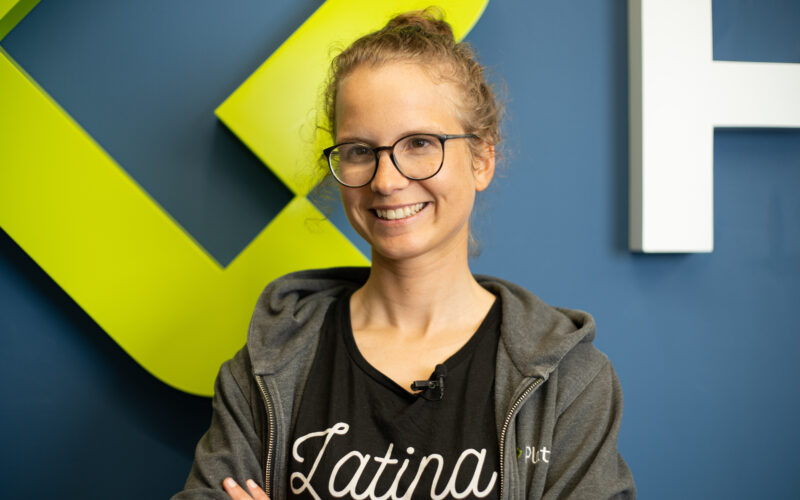The edtech Platzi has released a new report on women startup leaders in Latin America. The report highlights the findings of a survey made to 40 female entrepreneurs with seed stage and pre-series A companies with the highest projection.
Juliane Butty, Director of Startups at Platzi, shared with Latamlist some of the report’s main findings:
Could you give us an overview of this report? What was the main objective?
The recently released report of Platzi gives a look on the state of women and entrepreneurship in Latin America with a focus on early-stage to pre-series A startups. We were pretty happy to see the woman’s application growing again this year for Platzi’s Startup Demo Day program, which is a seven weeks fellowship to support promising seed-stage entrepreneurs.
We went from 29% of woman-led companies applying to 32% this year. On the other side, we also saw with the report of LAVCA, that nearly one-third of VC went to woman-led companies in the first semester of 2022, which was a new record. So this is quite promising, and this shows that things are moving, and so that’s why we got the idea of this report.
We had three main objectives. The first one was to understand who are those women, what are their roles in the company, in which industry do they operate? How do they prepare to grow the companies? How do they learn? The second one was to promote and give exposure to some of the most promising women founders from our community that we are convinced will play a key role in transforming our region.
And finally, we wanted to create a list of resources that might be useful for anyone willing to learn more about growing a company, fundraising, and woman-led tech entrepreneurship in Latin America.
Who are Latin America’s female founders? What roles do they take? In which industries are they working?
Well, there is a lot of diversity between the profiled industries and the number of employees they have. But let’s say if it was to do a user profile type of the female founders, we can say that the majority of them are quite young, between 19 and 25 years old, or have some years of professional experience before they decide to launch. And so they launch between 31 to 35 years old.
Interestingly, over 60% of them took the role of the Chief Executive Officer, and 17% Chief Operating Officer. There is only 6.4% that are CTOs, and we are sure there is a big opportunity here.
Another interesting information is that over a third of them operate in the FinTech or retail industries. That means there is still a lot of industries where we could benefit from women’s brain and talent.
Could you share the main findings on women founders raising capital in Latin America?
When we look at funding, nearly 65% of the women are leading or are involved very closely in fundraising, which is quite a great information. Each woman knows how to convince, fight the impostor syndrome and talk numbers, and they are definitely in the fundraising game. Half of the startups led by those women have raised between $50k to $1M dollars, and 20% have already raised over $1M.
So it’s gonna be interesting to see how those numbers evolve in the coming years with the current economic downturn and the current climate. But definitely, this is starting to be interesting to see how women are leading the game also in venture capital. And actually, if we also think from the other side, there are more and more female investors and funds with women partners that are arriving in the region, and definitely, that should also boost women’s entrepreneurship.
What’s the most important takeaway from these findings? How can this new data help us act on closing the gap for women entrepreneurs?
When it comes to interesting takeaways, for example, there are a few more than 10% of the female entrepreneurs that co-founded the company with another woman. In fact, 85% of all of them founded their company with a male co-founder, and in most cases, those male co-founders are very close to them, either husband, boyfriend, or very close friends.
So here is an interesting follow-up question to think on, why is it like this? Is it something that acts as a limitation for women to launch a company just between women or with men external to their network? Is it maybe a lack of confidence, lack of financial resources, or lack of connection in the ecosystem?
And it’s not necessarily bad, right? That there are a lot of co-founders that really know each other for a while, really close friends or that are partners in life as well. But it’s still interesting to look at the context and why is it like this. Because eventually, if we can create a better bridge in terms of financial resources, in term of connections, we will also have more venture [capital funds] created by women eventually.
Another interesting takeaway is that 77% of the respondents mention mentoring among their top learning methods to keep in pace with the learning needed to grow their company. So that means that mentors have a likely and high impact on their journey. So something that we can do to ensure women founders keep growing and that their companies have more chances of success is to build more access and connection to experienced and very hands-on mentors in our region.
–
Juliane Butty has been involved in the startup ecosystem in Latin America since 2015. She started her career in Seedstars, a swiss investment fund focused on communities in emerging markets. After scaling the group in Latin America and opening operations in Colombia, Mexico & Peru, she joined Platzi, one of the leading education platforms for digital skills. She is currently the Director of Startups. When she is not working with entrepreneurs, you can find her in the mountains.



